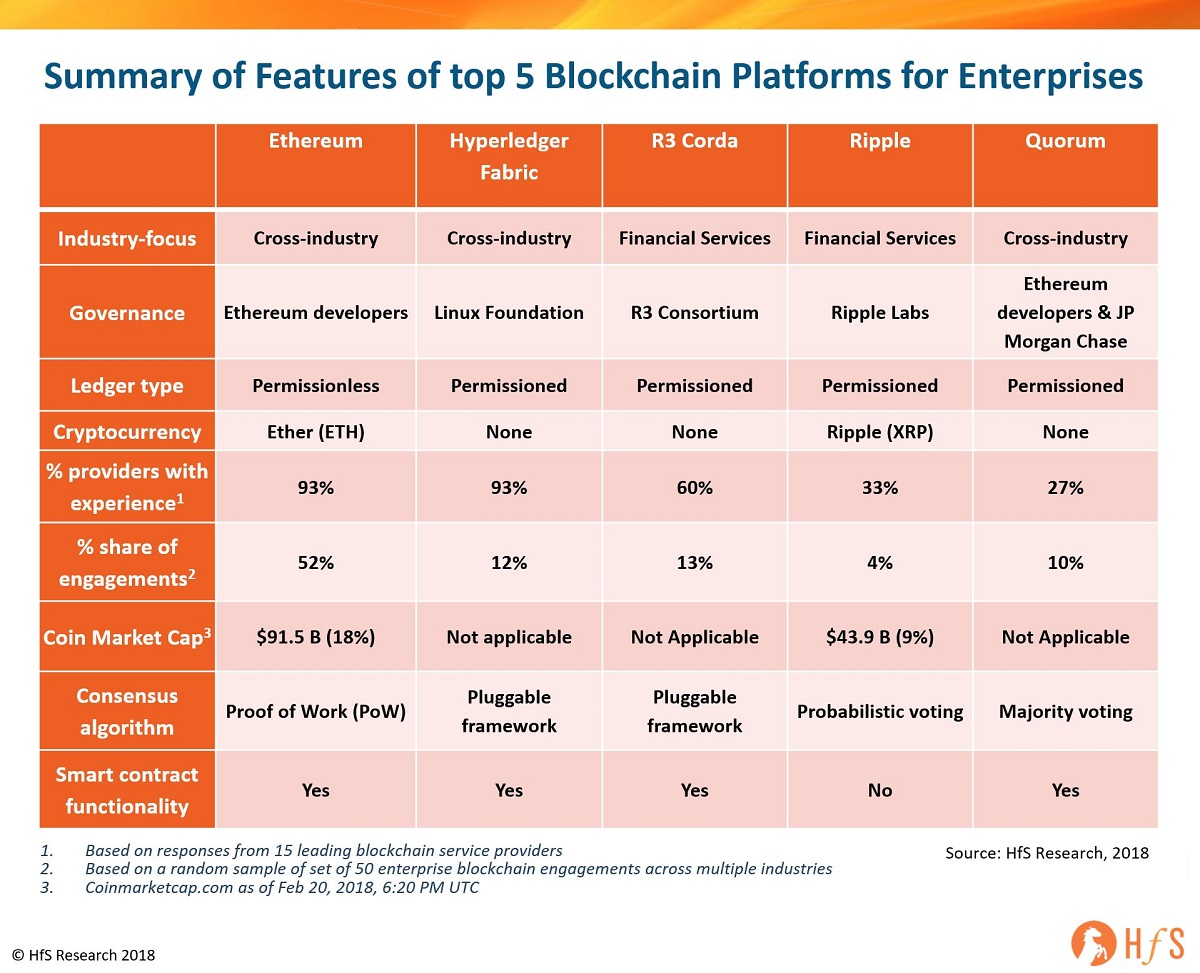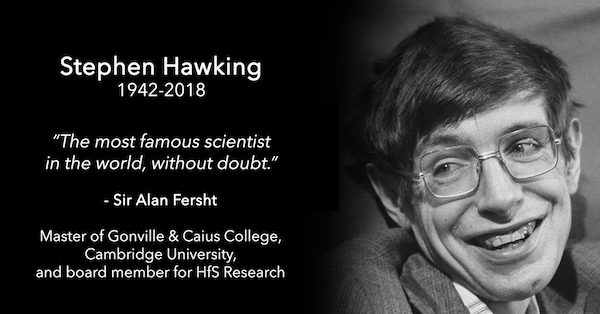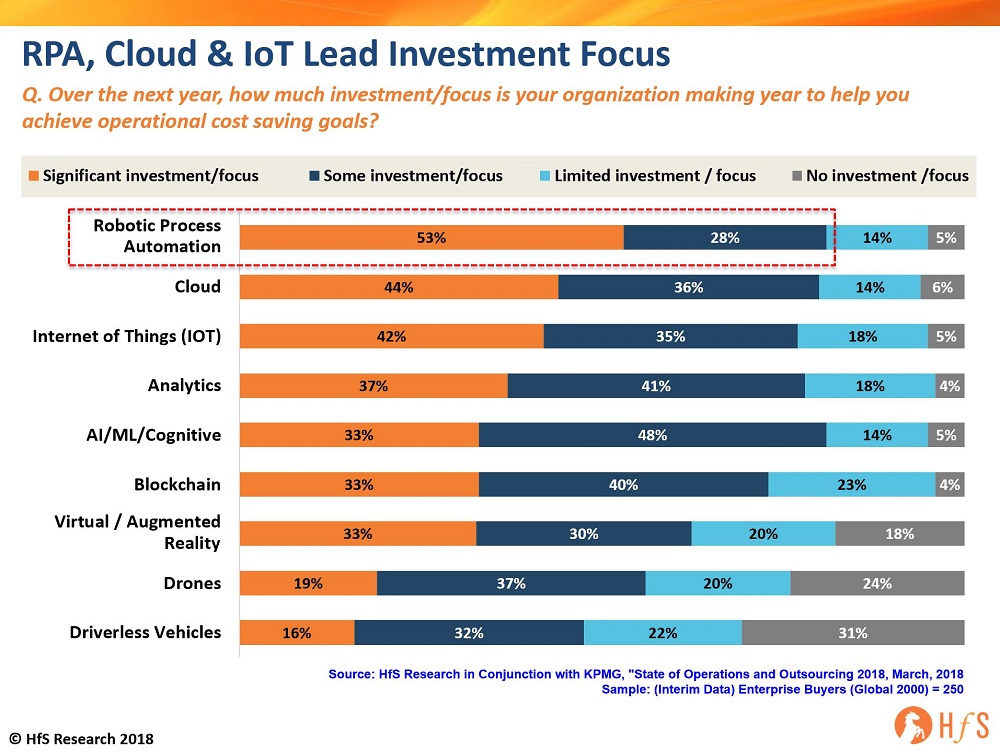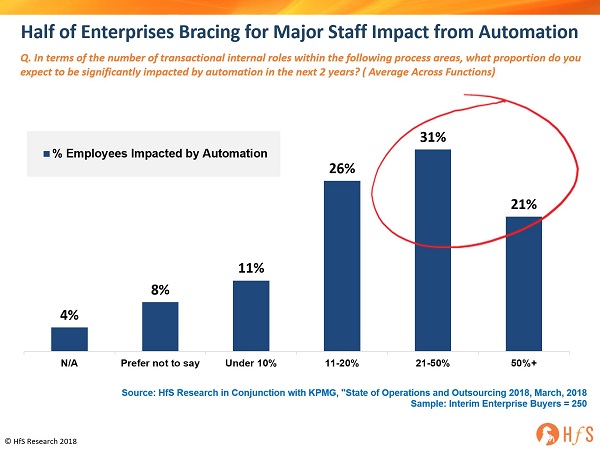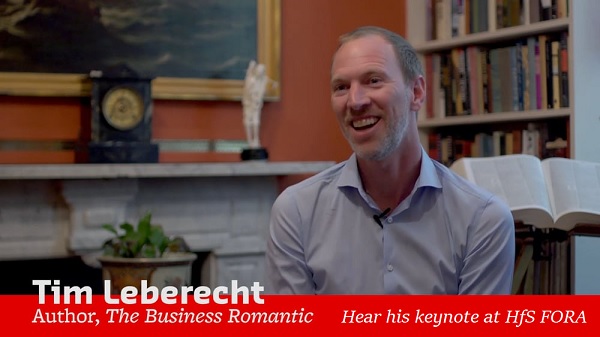Month: March 2018
Automation delivers the means, OneOffice provides the end
Without a defined OneOffice endstate, Automation strategies will always run out of steamRead More
The top 5 enterprise blockchain platforms you need to know about
HfS takes a deeper look at the top 5, namely: Ethereum, Hyperledger Fabric, R3 Corda, Ripple, and QuorumRead More
Farewell the Godfather of Time…
HfS is sad to learn of the passing of Cambridge Professor Stephen HawkingRead More
RPA is officially the shiny new silver bullet: 53% of the Global 2000 are planning significant RPA investments to slash costs in 2018
The world's leading enterprises view RPA as the next silver bullet to slash operations costs. Is this realistic?Read More
Findings from #HfSFORA: Half of firms’ staff will be impacted by automation and 40% of them have no idea what to do with them
So here's the biggest issue facing enterprise operations in the next couple of years: what to do with staff impacted by automation.Read More
Meet the Business Romantic: Tim Leberecht
Phil Fersht interviews keynote speaker at FORA Tim Leberecht, Author of the Business RomanticRead More



